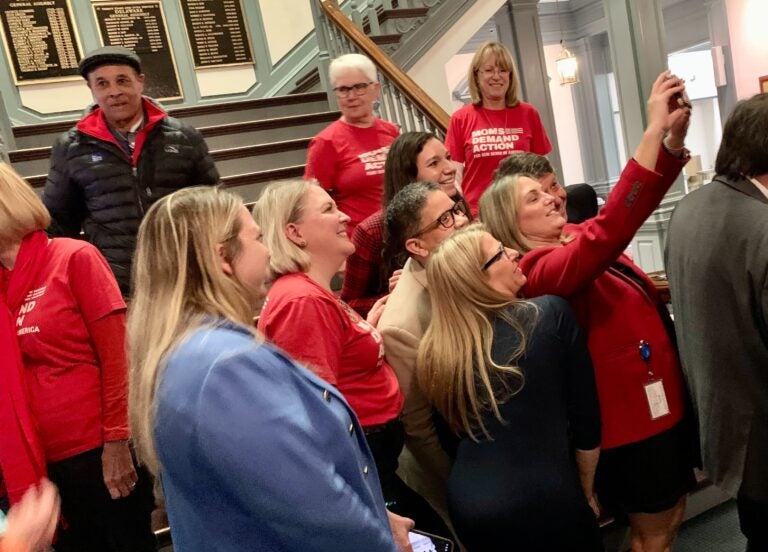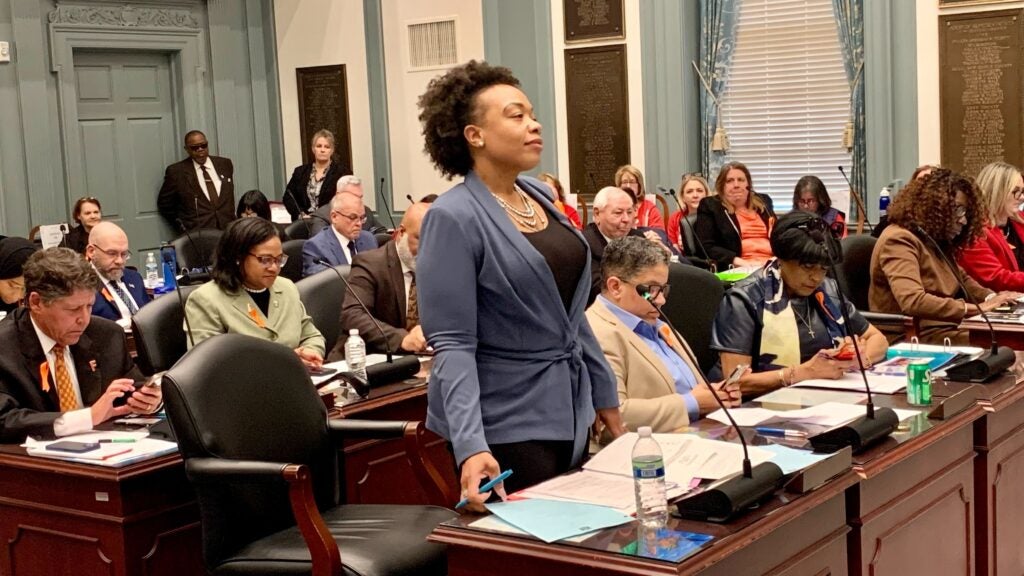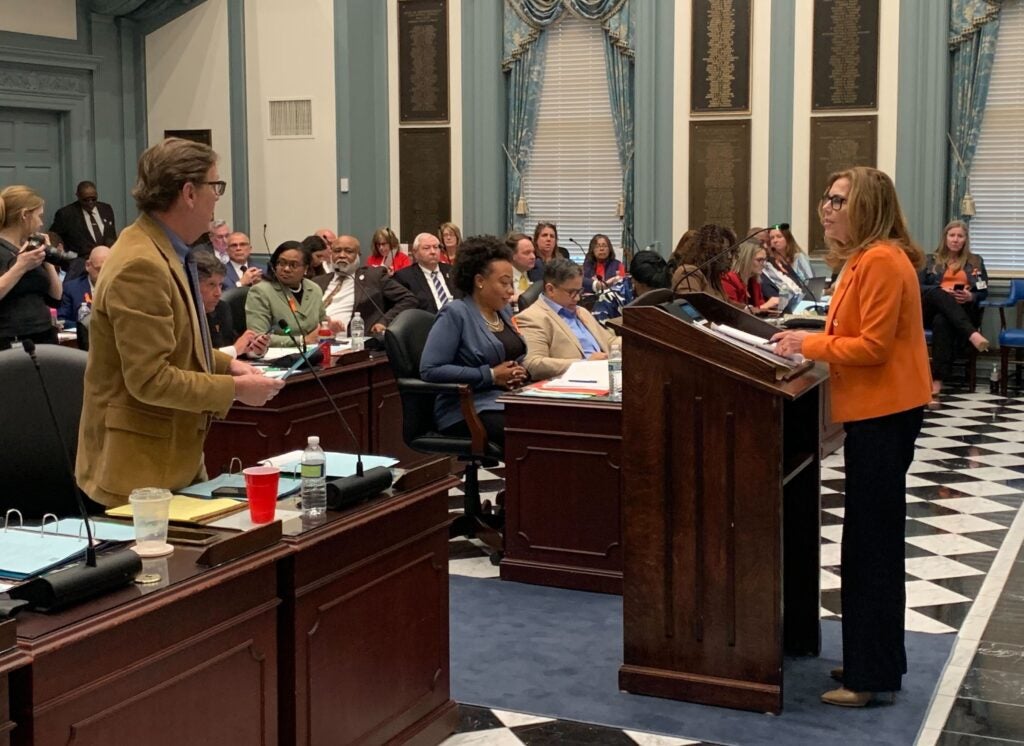Delaware House approves permit, training requirements for handgun purchases after contentious debate
"Permit-to-purchase laws work,” said Rep. Melissa Minor-Brown. “States with permit laws have 25% lower gun homicide rates, 50% lower gun suicide rates.”
Listen :58
Moms Demand Action and House Democrats take selfies after the permit to purchase bill passes along mostly partisan lines. (Sarah Mueller/WHYY)
This story was supported by a statehouse coverage grant from the Corporation for Public Broadcasting.
From Philly and the Pa. suburbs to South Jersey and Delaware, what would you like WHYY News to cover? Let us know!
Delaware handgun buyers could soon be required to get a permit and training before being allowed to make their purchase under legislation approved by the state House Thursday night.
Lawmakers spent hours of at times fierce debate on the measure Thursday night, including the introduction of nearly a dozen amendments.
The vote was primarily along party lines, with 23 members voting yes, 16 members voting no and two members absent. Two Democrats, Rep. Sean Matthews and Rep. William Carson, voted against it. Opponents of the bill called it unconstitutional and said it infringes on Second Amendment rights.
The bill was the first major piece of business lawmakers have considered since both chambers took a break at the end of January for budget hearings. Despite Republicans complaining the vote on the legislation had been rushed, bill sponsor Democrat Rep. Melissa Minor-Brown argued supporters had been working to pass it since 2019. It has an estimated $12.5 million price tag over the next three years.

“This legislation has been the product of years of discussion, meetings and collaboration with colleagues in this building constituents, advocates and stakeholders,” Minor-Brown said.
The measure creates a new application process for those who want to buy a handgun.
A prospective gun buyer would go to a state police office, get fingerprinted and go through a background check. The State Bureau of Investigation would have 30 days to investigate the application before deciding whether to grant the permit. The buyer also must have completed a training course within the past five years.
Qualified current and former law enforcement officers and those with a license to carry concealed deadly weapons are exempt under the legislation. A permit is valid for up to two years. It does not limit the number of handguns someone can purchase with the lifespan of the permit.
The bill cleared the Democratic-controlled Senate on a party-line vote last May. Senate sponsor Sen. Elizabeth “Tizzy” Lockman and Minor-Brown said this kind of law reduces crime, suicide and gun accidents.
“Permit-to-purchase laws work,” Minor-Brown said. “States with permit laws have 25% lower gun homicide rates, 50% lower gun suicide rates and states requiring a permit to purchase a firearm were associated with 60% lower odds of a mass public shooting,” she said.
Four amendments were added to the bill, with Democrats rejecting several more proposed by Republicans. GOP members said they were attempting to reduce the cost of the bill on taxpayers and potential handgun buyers. Both sides complained about a lack of communication about the bill and the amendments. However, Republican attempts to table the legislation were unsuccessful.
Minor-Brown added an amendment that dropped a voucher program to help people with low income afford the training course at the price of about $1.7 million. The amendment also extends the life of the permit from one year to two. It would also allow the permit to be revoked and the guns seized if law enforcement later determines the person is a danger to themselves or others.
A GOP amendment from Republican state Rep. Jeff Spiegelman also passed. His change would exempt certain professions and people from the training requirement if they’ve already had firearms training, such as members of the military.
A later amendment from Minor-Brown narrowed the exemption granted under Speigelman’s amendment. Another successful amendment would limit public viewing of permit application data.
Other Republican amendments that failed included efforts to expedite the permit process to those who may be facing a domestic violence situation or efforts to speed up the permitting process.

Republican House attorney Ron Smith testified he believed the legislation would be found unconstitutional if signed into law. He pointed to Maryland’s permit-to-purchase law, which was ruled unconstitutional in November by the Fourth U.S. Circuit Court of Appeals. He also said removing the low-income training voucher violated the Second Amendment.
Delaware Attorney General Kathy Jennings said she was confident the measure would withstand legal scrutiny.
“My office is defending all of the challenges to gun bills passed by this legislature and I can tell you that as I stand here tonight, not one of those challenges has been successful,” she said.
The bill has to go back to the Senate for approval of the House amendments. If there are no changes, it will go to the governor for his signature.

Get daily updates from WHYY News!
WHYY is your source for fact-based, in-depth journalism and information. As a nonprofit organization, we rely on financial support from readers like you. Please give today.







